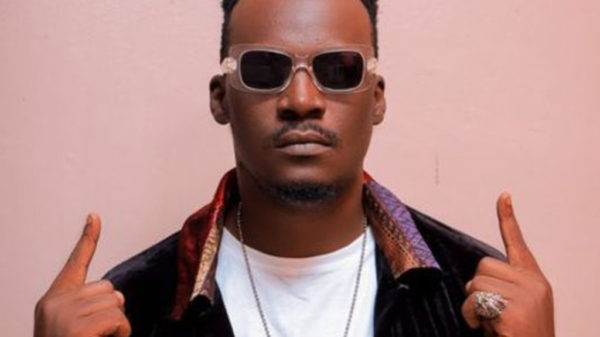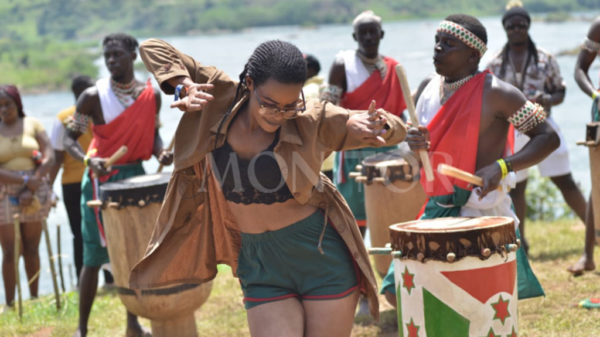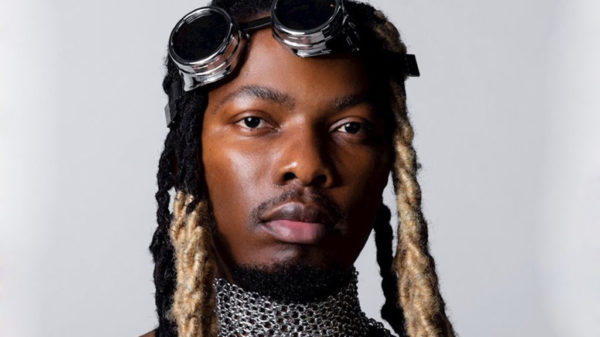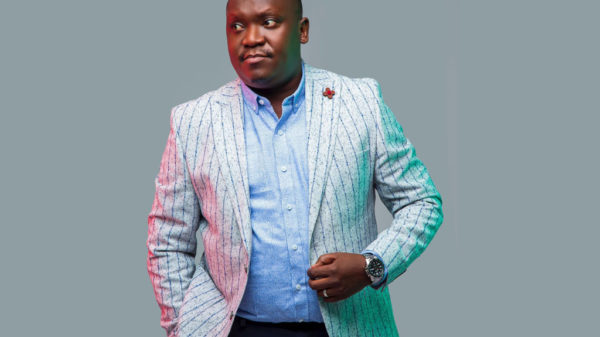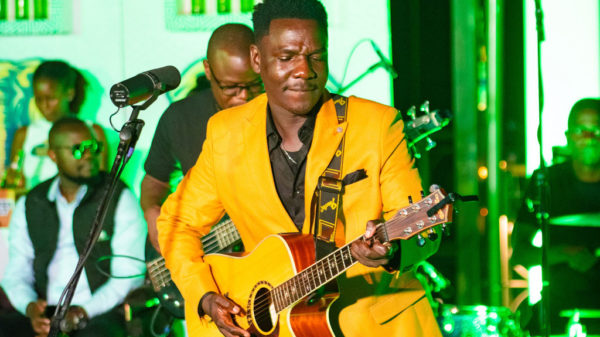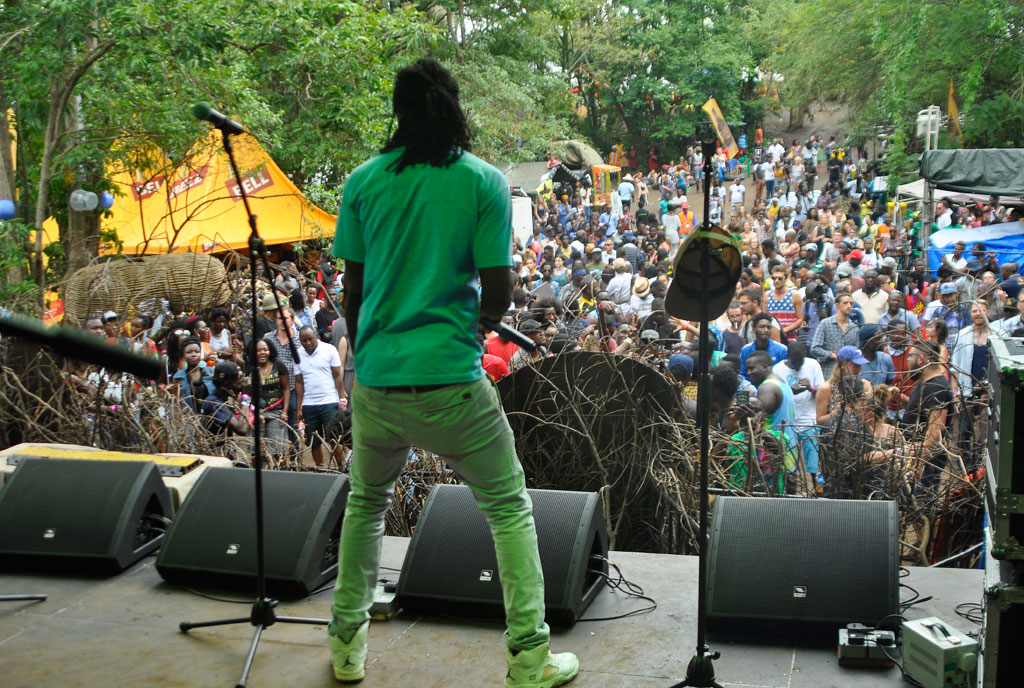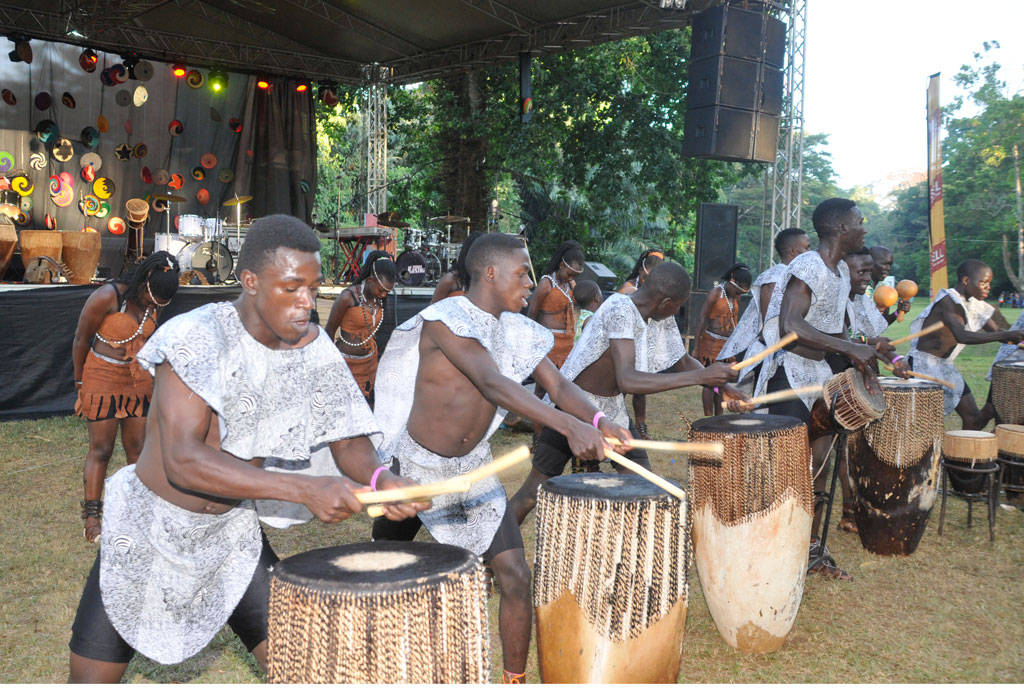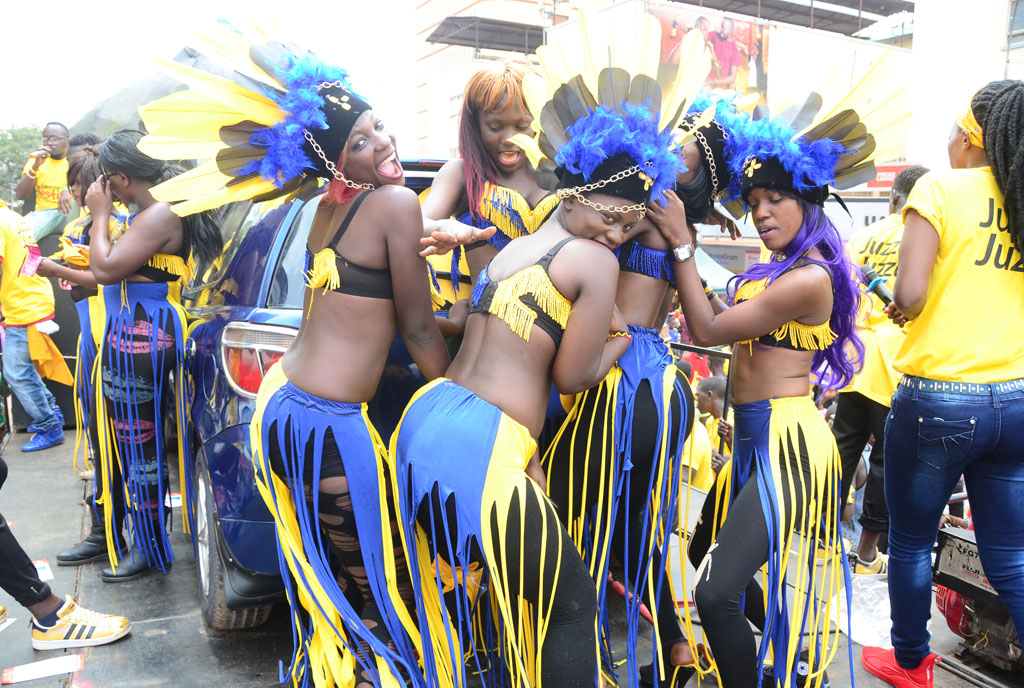FUNTIMES: If festivals were the mark of wealth, Uganda would be among the richest countries in the world. The party-loving, ever-curious, never-satisfied Ugandans long for more and festivals could be an answer to that desire for more. But what is the history of these festivals that get everyone talking? What are they all about? In a country that is at the brim of festivals, there surely has to be those that stand out among the pack. Nigeria may have the Calabar festival, America could have Coachella and Burning Man, Kenya is bragging with the Mombasa carnival and the famous Lamu festival. Uganda is now making a bold statement with its festivals. Forget the Rolex, Pork, Muchomo, Ice Cream & Cake, Bagiya etc, here are the festivals that stand out, as Ian Ortega writes.
1. .Nyege Nyege Festival
“I left my soul somewhere in Jinja last year and I intend to come find it this year,” wrote Kidron Googo about the 2016 Nyege Nyege experience. For there seems to be a spell that is cast upon whoever attends Nyege Nyege, it is an uncontrollable feeling, a sudden spark of awareness of no return. For those who attend, it is a chance upon an answer, a discovery of a self that got away. But what exactly is Nyege Nyege?
The festival that covers an entire weekend at Nile Discovery Beach in Jinja has been described infamously as Uganda’s ‘sex-fest’, not forgetting the irony of the meaning in Swahili. Others have compared it to the African version of Coachella, better still, some have nicknamed it, Uganda’s alternative to Burning Man.
According to the minds behind Nyege Nyege, the inspiration came from the 1966 Dakar, Senegal World Festival of the Black Arts (FESMAN). The FESMAN was state-sponsored, with a full backing of Senegalese president at the time, Léopold Sédar Senghor. From sculpture, poetry, debate, music, and theatre, the festival had it all. It was a Negritude movement.
For Nyege Nyege, it is the festival that speaks to all those with that urge to shake, dance, move, and do so in a musical and surreal way with its sculptures. It is three days of continual musical spins with multiple stages. The 2017 experience had its four stages, all featuring nothing less of a celebration of contemporary African music, in all its styles and genres. Nyege Nyege also serves one the African cuisines, those foods such as the Jollof rice but above all, it is an entry into Africa’s fashion in its authentic form.
The revellers who make it to the festival may never know the faces behind the festival, a brain-child of Arlen Disizilan and Derek Debru. It is through their Boutique foundation that they brought the event to life in 2015, a festival that has become a not-to-miss for Ugandans, and for revellers around the world. And if you are looking for an actual definition of Nyege Nyege, you have to attend as the only way to define it, for it is everything you choose to make it.
2. Bayimba International Festival
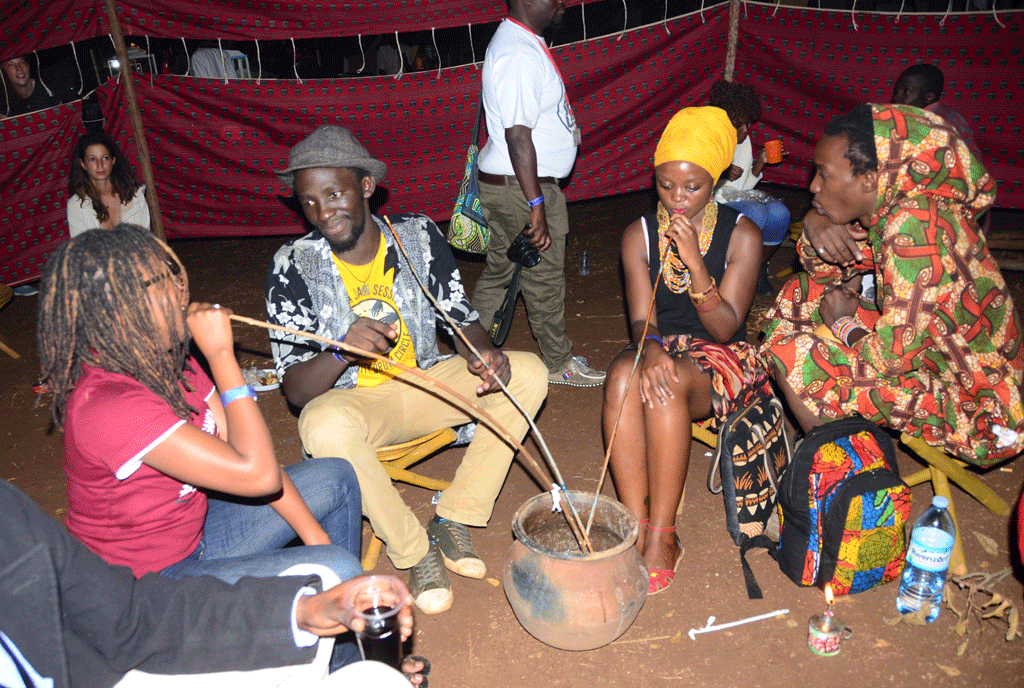
Now in its 10th edition, Bayimba deserves recognition as Uganda’s poster child of festivals. In the Bayimba organisers’ words: “the third week of September, Kampala comes alive as a vibrant and eventful city when an unparalleled feast of music, dance, theatre, film, and visual arts from renowned and upcoming artistes are brought to the city.”
The location of the festival has always been at the National Theatre, something very symbolic for Ugandan arts and culture. It was also at Bayimba that many Ugandans were first introduced to the idea of silent disco, an idea that has become a mainstream theme across hangouts. It is also at the festival that contemporary, alternative Ugandan music unites with the mainstream in performances that span days. Bayimba was Uganda’s answer to the cry for ‘Sauti Za Busara’ that happens in Zanzibar. Since its premiering, Bayimba has gone on to be ranked at par with this Zanzibar Festival, with many having unsettled arguments on the matter. If you are making that annual bucket list, then Bayimba is a must-listing.
3. Kampala City Festival
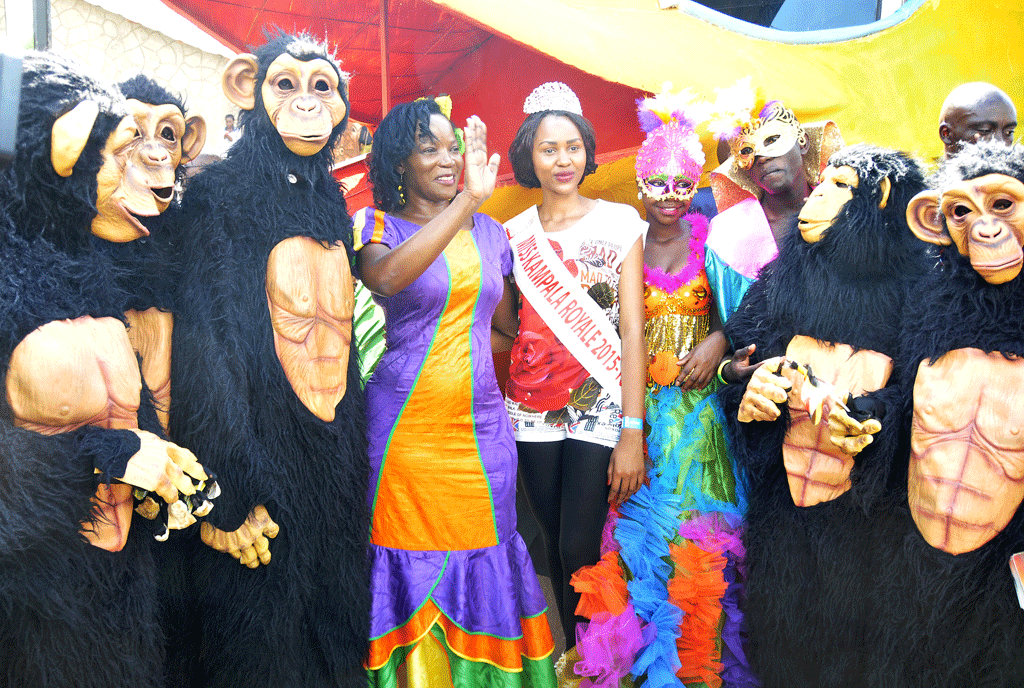
Years later while we get down to pen Jennifer Musisi’s legacy at the helm of Kampala, we shall be lost for words. The opening lines shall read; “Kampalans will forget what Musisi said, what Musisi did but they shall never forget how she made them feel with the festival.”
Some honest confessions are worth making, I was part of the famille de skeptics when the festival was launched in 2012. But we the skeptics and naysayers were wrong. For in that hour of Uganda’s 50th anniversary celebration, KCCA saw this awesome moment to launch Kampala’s trademark. It was a moment for the city dwellers to be part of something, and own it. It was their moment to celebrate the city.
The Kampala Festival was to morph into the time when the hustle and bustle of Kampala life was replaced with celebrations, fun, hugs and diversity. Five years later, the festival is now the highlight of the Independence celebrations. For what is independence other than the ability of the ‘Kampalans’ to be free, to explode, to dance, to eat and walk these streets without tension. It is party on the streets, probably Africa’s biggest street party. And for 2017, Diamond Platinumz has been announced as the headline act.
According to KCCA, “the 2017 experience will present an unprecedented dimension in the history of the festival characterised by fresh additions such as the International Zone and a pre-festival concert all packaged under the theme: Revel Diversity—celebrating who we are and the facets that uniquely depict our profusion of brilliant culture and social life. “To others, the festival is the time to bring out the rebel in you, to walk the streets knowing there is not a chance for a boda boda to bump into you, or for some drivers to hoot at you.
4. Milege World Music Festival
Jinja seems to be the first possible location for most festivals. The story is no different for Milege that was first held in Jinja in 2010 before shifting location to Entebbe. Now Jinja is known for Nyege Nyege, Entebbe has also chosen Milege, a three-day celebration that takes place at the Botanical Gardens. The festival is now a joint initiative of the Entebbe Mayor and Milege Inc.
To quote their description, “It is a festival of indigenous arts in their pure and experimental forms that focuses on unearthing young extraordinary artistes and showcasing heritage arts in their pure and experimental forms”. The concept is more less or like the Nyege Nyege, with camping and forest walks involved. The only addition being that Milege also caters to children and families.
Come November, the ankle rattles will sound once again, and that will announce the arrival of Milege, a word borrowed from the rich Japadhola language. And if you are ready to let the caged king in you to sing and dance, Milege is the moment.
5. Laba Arts Festival
Although not a music festival, it still makes way to Uganda’s best of the best list. It is that one day of appreciation of the visual arts. As usual, the festival shuts down Bukoto Street in Kamwokya for a day. It prides in being Uganda’s oldest street art festival.
It is that day when artists escape from the confines of their arts festivals and interact with the public in a super vivid experience. And when we say art, we also mean that there is dance to go with it. For what is art unless the human body expresses it in some form. Each year it comes with a unique theme, and the collections speak to that theme. It is music, it is dance, it is poetry all taking place on the canvas of the arts, the paintings, the sculptures. For a festival that kicked off 11 years ago, painting potholes, it has been a super evolution that now charms the public.
The Last Word
It seems we are now starting a new era of the festivals, and the country will continue to be enchanted by these experiences. It is also that era when the entertainment industry gets to grow on a collective, giving the audience more choice, more options, while uncovering the best the country has to offer in the arts and culture. And if tourism in the country has been searching for a lifeline, the festivals present that chance. It is also the moment to hear of great sounds that are lost in the noise.
Among the festivals to keep on the tabs, one ought to look at the Batalo Dance Festival in the pack. And for those planning out music festivals, it is important to guard against possibilities of being trapped. For in festivals lie two traps; trying to copy concepts from one culture, one country and trying to re-enact the same here. The other trap is the one where the organisers for some reason tend to start targeting the western audience instead of remaining authentic to that African celebration. Despite all this, festivals can only grow through more experimenting, more daring and above all, being authentic.































